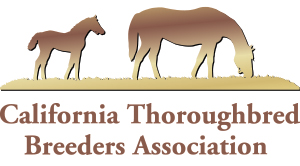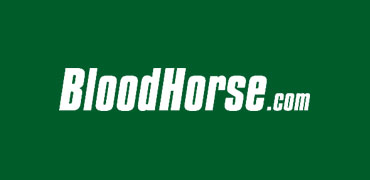By Bloodhorse.com
This is the second in a series of Q&A sessions with farm managers and general managers regarding how they are handling their Thoroughbred operation amid the COVID-19 pandemic.
SANTA YNEZ, Calif. (Apr. 21, 2020) — Barton Thoroughbreds, a 200-acre property located in the Santa Ynez Valley in California, opened in August 2017. The farm is involved in breeding, foaling, boarding, lay-ups, and yearling sales prep. It stands five stallions: Champ Pegasus , Cat Burglar, Misremembered , Dads Caps, and Tiz a Minister .
BloodHorse associate editor Byron King spoke with farm manager Kevin Dickson about how the farm has been dealing with COVID-19 and the virus-related suspension of racing at Santa Anita Park and Golden Gate Fields.
Dickson, who studied equine science at Colorado State University, was previously the manager of Vessels Stallion Farm for 21 years and Ocean Breeze Ranch for two years.
BloodHorse: How has COVID-19 impacted Barton Thoroughbreds, both directly and indirectly?
Kevin Dickson: The biggest impact I think we’ve felt is business has been a bit slower than normal, not as many outside mares coming into these stallions. Everybody is just hunkering down and just trying to figure how out to manage this thing as far as the business aspect of it. We’re quite busy with the horses we have—there’s a fairly large number of outside horses we take care of here—we can’t stop taking care of them. We have to foal them, breed them back, take care of the babies. My vet is busy. The crew is as busy as they’ve ever been.
Among the crew on the property, on the ranch itself, we’re following federal guidelines as best we can with distancing ourselves, using gloves. I have a very awesome office manager here that has a young child, and we essentially get deloused two or three times a day by her. Cleaning surfaces. We put out wash stations, providing gloves and masks, hand sanitizer when you can find it. She has been wonderful to oversee this, Lacey Coler, who works in her office here, in finding hard-to-find products. She has been really good at taking care of that for us.
So, really, other than it looks a little bit different and feels a little bit different, we haven’t changed much. We’re still going. Heck, we palpated 40 mares this morning and the stallions are busy. This is Mother Nature’s time to be breeding horses and she is sure working her magic for us.
We’re lucky in that a large portion of the staff live on the property. We had several staff meetings at the onset of this thing about where to go, where not to go, and if you start feeling ill or if your family or friends start feeling ill and you’ve been around them, please speak up. We have a very open-door policy with regard to that, even without a pandemic going on.
BH: What are the unique challenges amidst COVID-19 for a California farm, as opposed to one in another state?
KD: That’s a great question. I can’t really put my finger on it. We’re kind of unique unlike Kentucky, where y’all can bring a mare across town to be bred and bring her back home. All my horses have to come in here to live here. We’re blessed.
We’re lucky to be just around the corner Tommy Town Farms who have stallions like Grazen and (formerly) Boisterous . I’ve got a few mares we are breeding back and forth with them. It’s kind of business as usual with Mike Allen—he’s my managing counterpart at Tommy Town. We have a very good working relationship.
Other than just commerce in general has slowed. Fewer mares booked this year for sure, and that surprised me because the economy was just booming, such a bull market. And then it just crashed. People stopped coming, stopped shipping mares.
Other than these numbers that they keep putting out that I have tried to quit listening to—40 million people in California and there have been (around 1,200) deaths. I don’t want to take it lightly, but that seems like a pretty small fraction. Pretty much every day you get different figures on the fatality rate of this thing. It’s ridiculous. Let’s get this thing back open and going again. We’re going to have to.
BH: With the suspension of racing in California, have you seen an increase in layups and boarders?
KD: We might have received two extra horses in the midst of this pandemic that might have needed some R&R time. I think because they are essentially still open for training (there isn’t that much of an increase). Even our horses, we haven’t brought any of our own horses home … we want to be ready when they do open this thing. I’ve been talking to some of my colleagues and we haven’t seen an uptick in horses coming home to lay up.
BH: What do you anticipate going forward for the farm and the California horse industry?
KD: Undoubtedly, first and foremost they need to reopen these tracks. We have to get back to a sense of normalcy. If you think about it, there are no other sports. Horse racing is the last vestige to watch, wager on, enjoy. It was one of the very last sports we had sort of availability. No NASCAR, no golf, no baseball, no March Madness.
I’m sure that was devastating to you boys (in Kentucky); you’re always ranked up high. It was my favorite time of year between March Madness and the Masters. And they were canceled. That hurt.
They have to get this racing reopened here in California. We have Del Mar coming. They’ve already canceled the (San Diego) fair, which precedes the racing meet. I am not certain what’s going to happen with the racing at Del Mar but I’m worried.
Late last week I guess, I started to hear grumblings about flattening curves with the pandemic. There is still a great amount of fear that if we open things back up that it is going to rear back up.
So going forward, they have to get this racing reopened. We have to get the track going, at least at Golden Gate and Santa Anita without people. Wear a mask, take the precautions necessary, take care of your staff, clean, social distance, do whatever you have to do. We can still do that with racehorses. There are still 750 people at the backside at Santa Anita working.
Horses, I haven’t met one yet that (cared) two flips about a coronavirus. They still need their conditioning, everything. It’s part of our daily life with these animals.
We’re not filing for unemployment. We’re working. We’re working a lot of hours, and busy this time of year because it’s the spring. We have to get the confidence from our clients that you’re horses are safe here. We’re going to take care of them. We’re not short-staffed. If anything, I’m hiring people. We’re getting ready for a busy sales prep season depending on what goes on with these sales … we have to have a place to sell our horses and we hope and pray the (yearling) sales are not affected by this.


